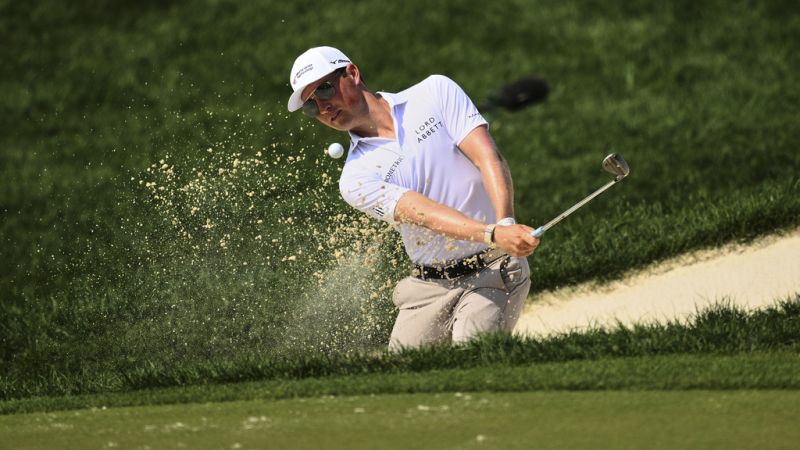The BMW Championship, a prestigious event on the PGA Tour, witnessed an unusual turn of events when a golfer, whose name has not been publicly released to protect his privacy per his request, attributed his sudden and dramatic on-course collapse to a creatine overdose. The incident, which unfolded during the tournament’s latter stages, has sparked a conversation about the use of supplements in professional sports and the potential dangers of exceeding recommended dosages.
**The On-Course Incident and Subsequent Revelation**
Reports emerged during the BMW Championship of a golfer experiencing severe physical distress, requiring immediate medical attention. While details remained scarce initially, the athlete was visibly struggling, experiencing symptoms consistent with dehydration and exhaustion, before ultimately withdrawing from the tournament. Speculation ran rampant among fans and commentators, with hypotheses ranging from heatstroke to a more serious underlying condition. However, in a subsequent, exclusive statement released through his representatives, the golfer revealed the unexpected cause: an unintentional creatine overdose.
Creatine, a naturally occurring compound and popular dietary supplement among athletes, is often used to enhance muscle strength and performance. While generally considered safe when taken as directed, exceeding recommended dosages can lead to a range of adverse effects, including gastrointestinal issues, dehydration, and, in severe cases, muscle damage and even kidney problems. The golfer’s statement emphasized that the overdose was accidental, resulting from a miscalculation of his supplement regimen. He expressed regret for the incident and stressed his commitment to responsible health practices moving forward.
**Supplement Use and its Implications in Professional Golf**
The incident raises important questions about the prevalence and regulation of supplement use in professional golf. While the PGA Tour doesn’t explicitly ban creatine or other supplements, players are generally expected to adhere to the World Anti-Doping Agency (WADA) code, which prohibits certain performance-enhancing substances. Creatine, however, is not on the prohibited list. Nevertheless, the golfer’s experience serves as a cautionary tale highlighting the potential risks associated with improper supplement use, even with substances generally considered safe. Experts have stressed the importance of consulting with medical professionals and registered dieticians before starting any supplement regimen, particularly for athletes undergoing rigorous training and competition. The lack of mandatory testing for supplements beyond those prohibited by WADA leaves room for debate regarding the need for stricter oversight or educational initiatives within the golfing community.
**Looking Ahead: Lessons Learned and Future Practices**
The golfer’s experience offers a valuable lesson to aspiring and professional athletes alike. The incident underscores the critical need for meticulous attention to detail when using supplements, emphasizing the importance of following recommended dosages and consulting with healthcare professionals. While the incident at the BMW Championship was undoubtedly unsettling, it also presents an opportunity for the PGA Tour and other sports organizations to revisit their approach to supplement use and educate athletes about the potential risks and benefits. Transparency and proactive measures to promote responsible supplement use are crucial to safeguard the health and well-being of athletes and maintain the integrity of the sport. The golfer’s privacy is being respected, but his experience is a stark reminder that even seemingly innocuous substances can carry significant risks if misused.
Based on materials: CNN





